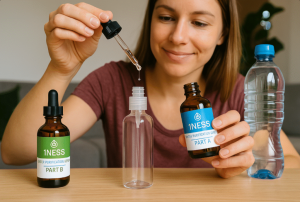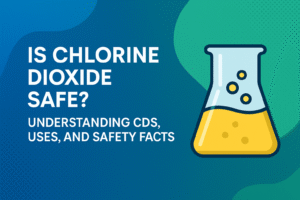Why Resourcefulness Is the True Path to Independence
In a world driven by convenience and instant gratification, the concept of self-reliance is often forgotten. We’ve been conditioned to believe that freedom comes from wealth, status, or endless consumption—but true independence is far simpler and more empowering. It begins with resourcefulness.
Resourcefulness means using what you have, thinking creatively, and building a life that doesn’t depend on fragile external systems. It’s about growing stronger through adaptability, preparation, and proactive living. And when paired with natural health and community support, it becomes the foundation of lasting freedom.
The Modern Need for Resourcefulness
Being resourceful is not just a practical skill—it’s a mindset that transforms how you live, solve problems, and face challenges. In a society that encourages consumption over creation, choosing to repair, reuse, and repurpose sets you apart. It’s not just frugality—it’s freedom.
When you mend clothing instead of tossing it, grow herbs on your balcony, or learn to purify your own water, you reclaim your agency. You’re not waiting for systems to support you—you’re supporting yourself.
Teaching this mindset to your children and grandchildren is one of the most powerful gifts you can offer. When kids learn to repair what’s broken, reuse what’s available, and think independently, they grow into resilient, self-sufficient adults.

Five Practical Ways to Cultivate Resourcefulness
You don’t need to overhaul your life overnight to become more resourceful. Start with small, consistent actions that compound over time. Here are five practical ways to begin:
- Repurpose and Reuse
Turn old containers into storage jars, transform worn fabrics into reusable bags, and look for second lives in everything. Every act of reuse reduces waste, saves money, and builds creative problem-solving skills. - Learn DIY Skills
Basic sewing, home repairs, gardening, and even cooking from scratch are skills that not only lower costs but empower you to meet your needs without waiting for help. These small skills add up to real independence. - Grow Some of Your Own Food
Even if you start with a few herbs or a tomato plant, homegrown food builds confidence and reduces reliance on grocery chains. It’s a daily reminder that you’re capable of providing for yourself. - Use Natural Health Solutions
Relying less on pharmaceuticals and more on plant-based, time-tested remedies is an act of both health sovereignty and environmental stewardship. Products like Soursop Drops (for digestive and mental health), Mullein Drops (for respiratory strength), and Chlorine Dioxide Water Purification Drops (for clean, safe water) help reinforce this independence. - Build a Local Support Network
Join or start local groups that focus on food growing, bartering, skill-sharing, or natural health. Resilience grows in community, not isolation.
Want to connect with others on the same path? Join our “Aging with Purpose” Facebook group to exchange ideas, skills, and support.
Bring Resourcefulness into Daily Life
The power of resourcefulness lies in the ordinary. It’s in cooking meals from scratch, using glass jars instead of buying plastic containers, or taking 10 minutes to learn how to fix something instead of throwing it out.
Start with:
- Composting scraps to nourish your garden.
- Fixing minor home issues like leaks or squeaky doors.
- Using natural wellness tools to stay ahead of health issues instead of reacting to them.
By adopting these practices, you create a life where you’re no longer at the mercy of unreliable systems, expensive services, or complex supply chains.
Teaching the Next Generation to Be Resourceful
Raising resourceful children starts with modeling resourcefulness yourself. It’s not about perfection—it’s about progress, consistency, and letting them see that solutions are often closer than they think.
Key Lessons to Pass On:
- Problem-Solving Over Panic
Teach children that every challenge is an opportunity to find a creative solution. Whether it’s fixing a torn backpack or solving a logistical hiccup, show them how to think rather than rely on instant replacements. - Value of Natural Health
Use daily rituals to instill the importance of natural remedies. Explain how Soursop helps support the gut-brain connection and why Mullein supports the lungs. Make it normal to think about prevention, not just prescriptions. - Hydration Awareness
Explain why clean water is foundational. Teach them to purify their water using Chlorine Dioxide Drops, and talk about why self-purified water is better for health and sustainability.
Hands-On Skills
Let kids participate in planting, cooking, building, or organizing. These aren’t chores—they’re life skills that boost confidence and create deeper appreciation for effort and outcomes.

Resourcefulness as a Way of Life
At its heart, resourcefulness is a daily decision to look inward before reaching outward—to ask, “What can I do with what I have?” It becomes a rhythm: reduce, reuse, repair, and regenerate.
Consider These Habits:
- Shop Less, Create More
Instead of buying new, explore what you can make, mend, or trade. This mindset promotes thoughtful consumption and waste reduction. - Invest in Quality Over Quantity
Whether it’s clothing, tools, or wellness products, choose fewer high-quality items that last longer and serve multiple purposes.
Practice Preventive Health
Use holistic tools that help your body maintain wellness naturally. For example, Mullein Drops can be used daily to support respiratory function, especially for those living in polluted or allergen-rich environments. Soursop Drops enhance digestion and focus. These are not reactive band-aids—they are daily investments in vitality.

Strengthening Communities Through Resourcefulness
While resourcefulness begins within, its impact multiplies when shared. In community, resourcefulness becomes a web of resilience. Start with your neighbors, family, or local farmers.
Here’s how:
- Skill-Sharing: Host small gatherings or virtual meetups to teach each other what you know—from canning to herbal remedies.
- Bartering: Exchange goods or services rather than relying on money. Trade eggs for herbs, tinctures for sewing work, or homegrown produce for DIY help.
- Community Gardening: Create shared growing spaces where neighbors contribute labor and share the harvest.
This isn’t just nostalgic living—it’s revolutionary in an age of digital dependence and global supply chains. It reconnects us to each other and ourselves.
Independence Starts Now
The road to true independence doesn’t require off-grid living or radical change. It starts with a mindset shift and is built with small, consistent choices.
You can begin today:
Swap one store-bought item for a homemade or natural alternative.
Teach your child or grandchild how to plant a seed or fix a zipper.
Purify your own water with Chlorine Dioxide Drops to protect your health and reduce reliance on bottled water.
Use Soursop and Mullein Drops daily to support foundational wellness.
Join a like-minded community such as our Aging with Purpose Facebook group.
Final Thought
Resourcefulness is the quiet superpower that transforms lives. It equips you to thrive in any environment, adapt to challenges, and inspire others to do the same. In choosing this path, you’re not just simplifying—you’re fortifying. You’re not just saving money—you’re claiming freedom.
When you live with purpose, health, and resilience, you’re building a legacy that lasts beyond trends, politics, or uncertainty. That’s the power of self-reliance. And it begins with one choice, one action, today.




